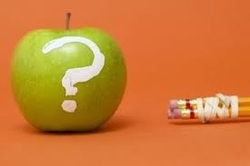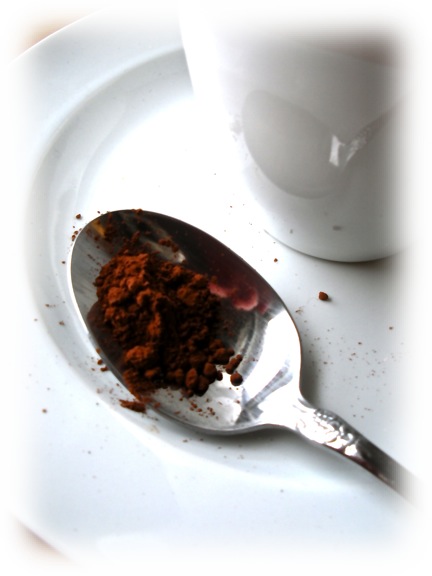
Knowing if nutrition information is credible is difficult for several reasons. First, nutrition is a new science. Isolated vitamins were discovered just over 100 years ago and we are just barely scratching the surface when it comes to things like phytochemicals. Because the science of nutrition is new sometimes it is easy to fill in the gaps so to speak before actual evidence is available. Or in other words, draw conclusions before all the data is in. This doesn't necessarily happen intentionally, some times it is an honest mistake made because we don't know everything yet. Other times I honestly believe people make things sound like more then they really are because they are trying to sell you something. Those people make me angry.
Second, is the clash between personal/story based evidence and scientific evidence. This, in my opinion, is the most confusing of all because obviously it worked for one person, but we don't always know why, and therefore it may not work for you. Basically it happens like this; Man A runs marathons. He finds he is always tired and not running as well as he used to. Man A does some research online and decides he needs to supplement with mega doses of B vitamins, because B vitamins are credited with producing energy. Man A suddenly feels much improved and is running better than ever! He decides to make and sell a supplement to sleepy people everywhere, claiming to boost their energy 10 fold! Man A makes thousands of dollars selling the supplement to an unsuspecting public who do not realize that the only reason this supplement worked for him is because he had a B vitamin deficiency to begin with. Sadly for them, the supplement will not work because they do not have a deficiency. They just need to get some sleep. Really, this stuff happens. For example, change Man A to Dee, and supplement to cereal and marathons to diabetes...do you know what I'm talking? Incomplete claims like this happen in part due to the Dietary Supplement Act in 1994. Not that its a bad thing, it just means we need to be careful.
Third, is bad studies. I'll be honest, no study is perfect, but some are better than others. I'm not going to bore you with the details, partially because it brings back bad memories of statistics class, but results can be greatly impacted by the type of study, quality and quantity of data and the statistical testing done on it. I'll give you some key things to look for to determine the quality of a study.
If you don't want to get so technical when trying to decide if a sources is credible, use this easy acronym: CARS.
Credibility: Check the credentials of the author. Is it an RD, MD, or RN who had some type of education or emphasis in nutrition or is it a journalist turned nutritionist, a personal trainer with no nutrition education, or just someone who is interested in nutrition? Also watch out for nutritionist because nutritionist is not a protected title, just about anyone can use it with no problems (like me before I take my RD exam :P). Some are certified, others are not. Check their education and credentials.
Accuracy: Check to see if the information is current, based on facts, not stories, and looks at the big picture, not obscure details that aren't well supported.
Reasonableness: Check to see if the information is fair, balanced, and consistent. In other words is the author willing to admit what they don't know everything aka the limitations of their study. Or do they profess to know it all? Watch out for 100% guarantees.
Support: Check to see if the author has supporting documents or if other studies have been done and found the same or similar things. If a study can't be duplicated, or a similar thing hasn't been researched multiple times, it means we just don't know enough about the subject yet. Or, if the study can't be duplicated, it could mean the first one was a fluke.
I hope this helps you as you try and decipher nutrition information for yourself! If you ever have any questions about something you read somewhere else (or here for that mater), let me know! I'd love to do research for you and help you find the answers to your questions!
Second, is the clash between personal/story based evidence and scientific evidence. This, in my opinion, is the most confusing of all because obviously it worked for one person, but we don't always know why, and therefore it may not work for you. Basically it happens like this; Man A runs marathons. He finds he is always tired and not running as well as he used to. Man A does some research online and decides he needs to supplement with mega doses of B vitamins, because B vitamins are credited with producing energy. Man A suddenly feels much improved and is running better than ever! He decides to make and sell a supplement to sleepy people everywhere, claiming to boost their energy 10 fold! Man A makes thousands of dollars selling the supplement to an unsuspecting public who do not realize that the only reason this supplement worked for him is because he had a B vitamin deficiency to begin with. Sadly for them, the supplement will not work because they do not have a deficiency. They just need to get some sleep. Really, this stuff happens. For example, change Man A to Dee, and supplement to cereal and marathons to diabetes...do you know what I'm talking? Incomplete claims like this happen in part due to the Dietary Supplement Act in 1994. Not that its a bad thing, it just means we need to be careful.
Third, is bad studies. I'll be honest, no study is perfect, but some are better than others. I'm not going to bore you with the details, partially because it brings back bad memories of statistics class, but results can be greatly impacted by the type of study, quality and quantity of data and the statistical testing done on it. I'll give you some key things to look for to determine the quality of a study.
- Number of people. If it is only a dozen or so its probably not a good study, if it is a couple hundred the study is much better.
- Population of people. Usually studies focus on a group of people, ie diabetics, pregnant mothers, elderly, those with GI problems, etc. If you don't fall into that group yourself the study may not apply to you as well.
- Timeframe. If the study was done a long time ago or for a very short amount of time it is probably a) outdated or b) not very telling. Look for recent studies that were done for a substantial amount of time.
If you don't want to get so technical when trying to decide if a sources is credible, use this easy acronym: CARS.
Credibility: Check the credentials of the author. Is it an RD, MD, or RN who had some type of education or emphasis in nutrition or is it a journalist turned nutritionist, a personal trainer with no nutrition education, or just someone who is interested in nutrition? Also watch out for nutritionist because nutritionist is not a protected title, just about anyone can use it with no problems (like me before I take my RD exam :P). Some are certified, others are not. Check their education and credentials.
Accuracy: Check to see if the information is current, based on facts, not stories, and looks at the big picture, not obscure details that aren't well supported.
Reasonableness: Check to see if the information is fair, balanced, and consistent. In other words is the author willing to admit what they don't know everything aka the limitations of their study. Or do they profess to know it all? Watch out for 100% guarantees.
Support: Check to see if the author has supporting documents or if other studies have been done and found the same or similar things. If a study can't be duplicated, or a similar thing hasn't been researched multiple times, it means we just don't know enough about the subject yet. Or, if the study can't be duplicated, it could mean the first one was a fluke.
I hope this helps you as you try and decipher nutrition information for yourself! If you ever have any questions about something you read somewhere else (or here for that mater), let me know! I'd love to do research for you and help you find the answers to your questions!



